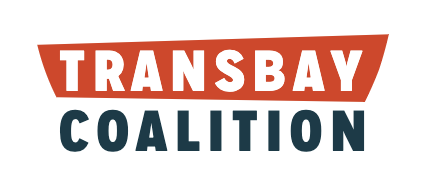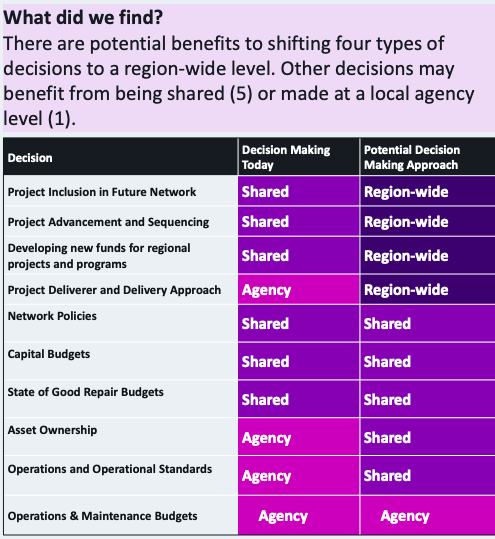A new study funded by the State of California concluded that there are potential benefits to be gained from regionalizing capabilities of the region’s fragmented rail system. ‘Regionalized’ capabilities would be led and managed by a single entity across the region.
The Regional Rail Partnership Study was conducted by the Metropolitan Transportation Commission in partnership with the region’s rail agencies, with analysis by international consultancy Steer.
Results are being presented for the first time this coming week, at the MTC Policy Advisory Council Transformation Action Plan subcommittee meeting on Monday starting 9am (Agenda, Zoom link), and the MTC Executive Committee meeting on Wednesday (Agenda #3C, Zoom link).
The study found potential benefits to a regional approach to project planning, funding, and delivery. However, in its conclusions about running integrated service for riders, some important conclusions may be buried in the fine print.
The study concludes that “network policies” and “operational standards” would benefit from “shared” decision-making, with some policies being handled at a regional level and others handled separately agency-by-agency. But the summary slides don’t go into detail about which is which.
From a rider perspective, standardizing fares among BART and Caltrain has already been shown to have benefits in the regional fare integration study. Synchronizing connections at Millbrae is already a priority for both agencies. It is arguably less important to standardize policies around, say, food – Caltrain allows food on the train and BART doesn’t.
The region’s core rail services are facing a fiscal crisis and need to regrow ridership. It would be helpful for the study to be explicit about the elements of service integration that could increase ridership, so the next steps could move forward.
Study assesses regionalizing Bay Area Rail functions
The study concludes that next steps could include pilots starting in the region’s core 5 counties, with larger geographical scope covering the 9-county Bay Area or a wider area over time.
Meanwhile, the study concludes that more detailed studies would be warranted about the costs, benefits, and phasing of changes to regionalize Bay Area Rail. Such studies could cover what sort of decision-making, management, and implementation structures would be effective.
The study was not specific about how to structure a region-wide decision-making body. It states that “Options for a region-wide decision making body could be: An agreement driven forum; A new decision making body; an empowered existing decision making body. Such questions would be covered in additional work (that may dovetail with the region’s Network Management study).
If you want to hear the presentation and have comments, you can share at:
MTC Policy Advisory Council Transformation Action Plan subcommittee meeting on Monday starting 9am (Agenda, Zoom link)MTC Executive Committee meeting on Wednesday (Agenda #3C, Zoom link). This meeting is listed for 10am but it will be after the full Commission meeting that is likely to run long – if you’d like an email or text when the item comes up, send us a note at friends@friendsofcaltrain.com
You can send comments in writing to info@bayareametro.gov by 5:00 p.m. the day before the scheduled meeting date, and feel free to copy us at friends@friendsofcaltrain.com

